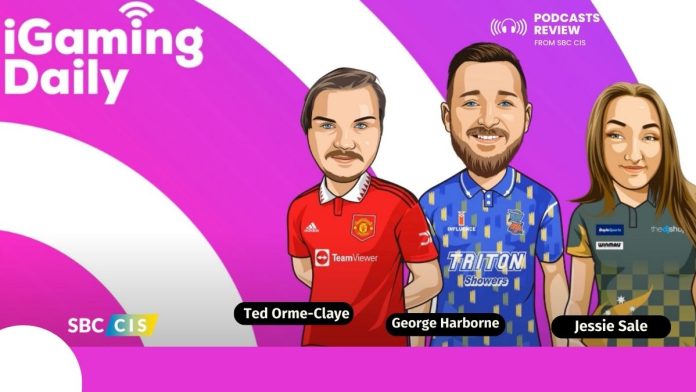In April 2023, Premier League clubs collectively agreed to remove gambling advertising from the front of their shirts, starting from the 2026/27 season. Whilst the betting sector generated millions for betting companies in terms of the cash payments of sponsorships, sports data and insights firm Horizm believes that other industries represent better ‘digital value’ than gambling.
What does betting’s low digital value tell us about its relationship with football clubs as the industry begins its long farewell with the top tier of English football?
The host of iGaming Daily podcast James Ross with Jessie Sale, Senior Journalist from SBC News, and George Harborne, Director of SBC Sponsorship, talked about their reactions to the new story.
George Harborne explained the lack of digital value quite easily. When examining the primary sponsors of the Premier League, especially those prominently displayed on the front of the team shirts, it becomes evident that many of them have a strong focus on Asian or overseas markets.
“The Premier League is pretty unique in the sense that it only has one broadcast feed that goes out globally. So, the Premier League is one of the most effective methods of reaching multiple markets, particularly in Asia. As a result, when it comes to digital engagement, particularly domestically, it just is not a priority, I guess, for these types of deals or is unlikely to be a priority because the target markets are not the UK,” he pointed out.
Jessie Sale, in turn, added that the Horizm data does not indicate a complete depreciation of the sector. An interesting example is highlighted in the report, which reveals that Bournemouth’s sponsorship with Dafabet only generated €5,763 in total digital value based on factors such as engagement and impressions.
Whereas, partnerships with alternative companies like Noon and EA Sports have provided significant digital value to clubs like Newcastle and Fulham, with Newcastle and Noon’s deal, in particular, holding a digital value of just under £200,000. However, this may also be due to the fact that the company is more focused on the foreign market.
Ultimately, the targeting market decides a lot. That is why the Premier League is different from La Liga, Serie A, or any other league in the world. Unlike the Premier League, they don’t have a single broadcast feed.
“If you are in Spain, you will not see a betting advert because it’s not allowed. However, if we are watching La Liga in the UK — we will, because the Spanish broadcast feed is different from the broadcast feed that reaches Europe, Latin America, or Asia,” Harborne added.
Nonetheless, he pointed out that it doesn’t mean that the formulaic approach is not replicated across the leagues with the EFL, for example, being far more creative.
“The relationship between sport and gambling is one of those as old as time. You want your brand to be seen in the context of a sporting event because it gives you credibility. I think there are some good examples of brands that have activated very well domestically but you have to go down the divisions to see that.
“If you are partnering in the EFL you don’t have that international platform. Therefore you are genuinely more domestically focused, you have hyper-local strategies for activation. In the last few years, brands have done that particularly well and they wouldn’t be coming back to it time and time again if it wasn’t effective.”
Yet, as the top division’s own vote on the matter set out 2026/27 as the first season without front-of-shirt sponsors, gambling branding on sleeves will of course continue.
“It is considered that partnerships with the industry are good for revenue regardless of reports about digital value but development will be whether the government decides to change its course on sponsorship and enforce a breaking of ties completely,” Jessie Sale concluded.
Don’t forget to subscribe to our Telegram-channel!











